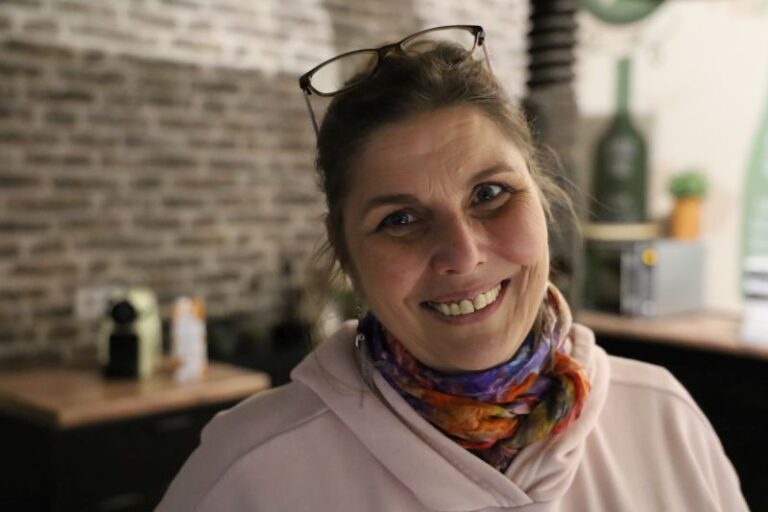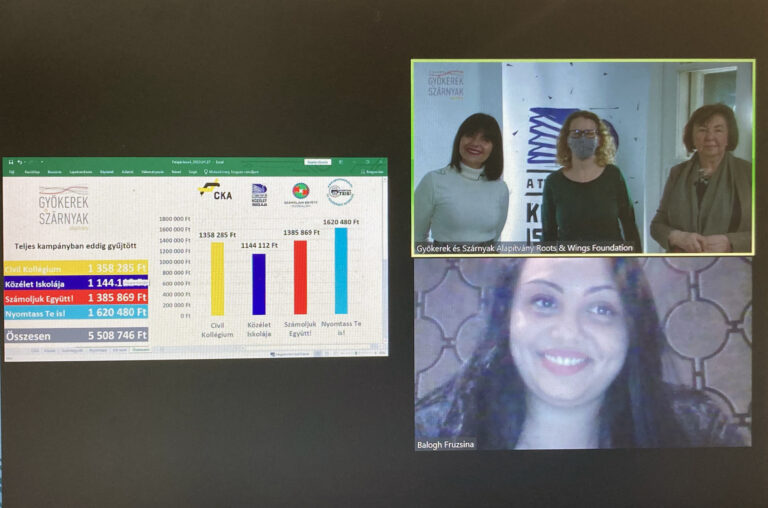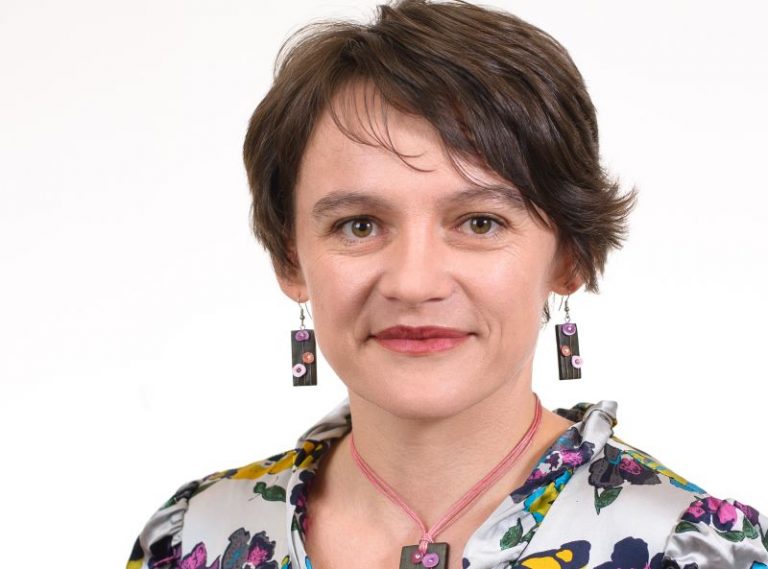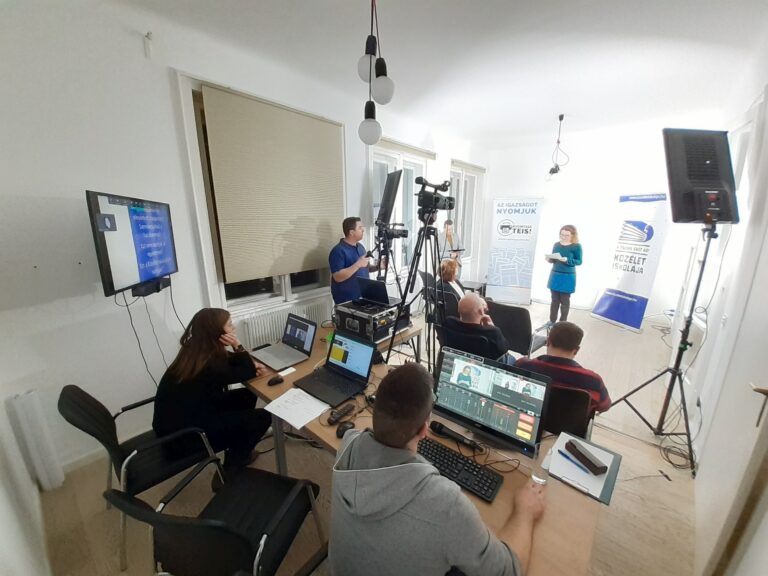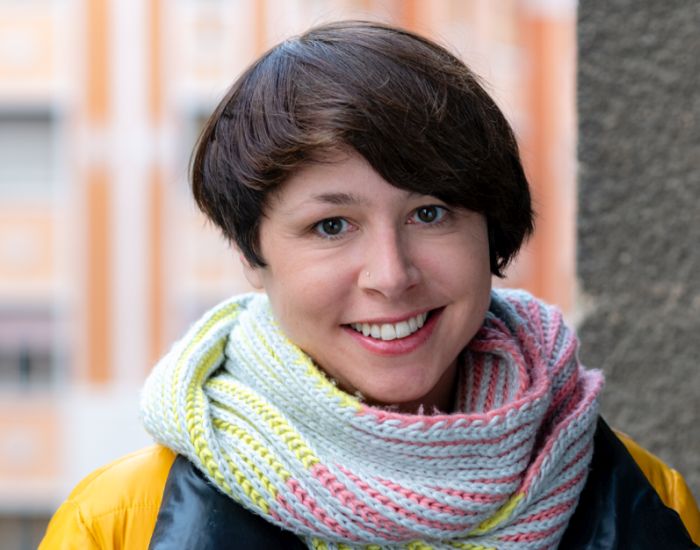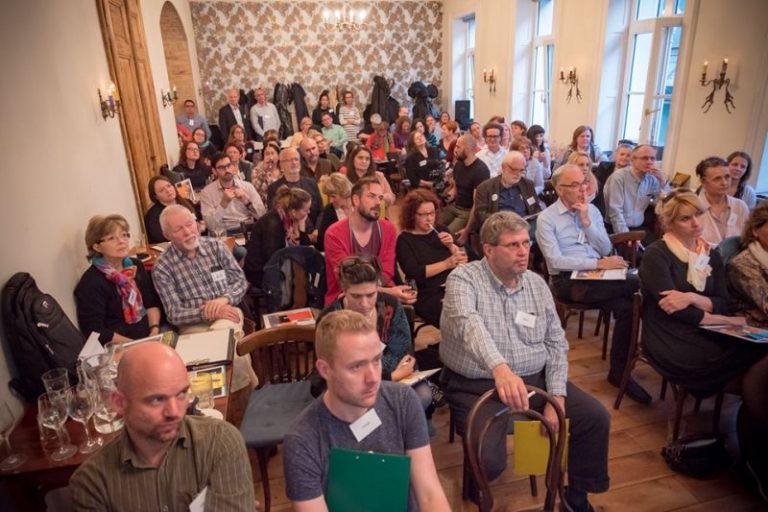“It always turns out that people come here for each other, true, while their hands are crafting and they are working”
“If you have love, honesty, and straightforwardness in you, and you step up decisively, it has an impact,” says Klára Ferencz, a beneficiary of our Revitalising Small Towns (RSM) Programme, with whom we talked about the relationship between collective creation and community, and the non-intrusive support of the Roots and Wings Foundation.
What happened, what was born in Gárdony in the past three years that wasn’t there before?
I got my own workshop, which was a big dream of mine; I never thought it could come true. Every square centimeter of space is mine, it gives a great sense of freedom and joy that I can share it with others.
You used to have a community space.
Yes, which we rented with the help of the municipality, but unfortunately, we had to leave it because the utility costs increased significantly. When I left, I thought for a week about what to do. Should I look for a job related to my profession, which I had the opportunity to do? Then I felt that I didn’t want to stop what I had been doing so far, and I didn’t want to tell 30 people that there is no longer a place where you can come home, where you can be for yourself and for others. My family also said that I would always remain a creative person and a teacher, and I wouldn’t be able to bear it without these. After that, we decided to go for it and build the workshop behind our house.
Have people gotten used to coming here?
They like it much more. The team came over one by one, and a lot of new people came as well. It’s a very strange feeling for me; I used to think it was unimaginable that work and private life could blend like this. Now there are two doorbells on the gate, one for the home, the other for the workshop, and people come in, bring their children, walk through our living space, and somehow it’s completely okay now.

Do you reach more people now than three years ago?
Three years ago, we approached people differently. Back then, I did everything together with Adri (Adrienn Pethes was a beneficiary of the program together with Klára but has since moved away from Gárdony), she is very good at mobilizing crowds, and it has always interested her. Our really big events, even with several hundred people, were done with the Cloud group (with Dóri Hankovszky and Erika Ferencz); it took the strength, dynamics, and connection of the four of us; we will never have a team like that again. It was a real specialty in our lives.
After the program ended and I was left alone, what I do is different. I have groups four days a week, with whom we draw and paint together. I have a group for pre-teens, an adult class, and classes for very young children. The youngest student is five and a half years old, the oldest is 75 – obviously, we learn more from the latter. There are also community events we join, where we work together, even if not everyone participates.
How many people come here?
With the groups, 35-40, and there are those who come for individual sessions, and they also leave their mark, which is very good for the creative space that others step into.
Is collective creation community-forming?
Yes, it’s clear that this is by no means a service. It always turns out that people come here for each other, true, while their hands are moving and they are working. I usually ask the kids to honestly tell me what they are looking for here at 5 PM on a Friday, really? I never scheduled a class for Friday before because I thought everyone would want to be home by then, plus these kids come from good families, loving environments. They told me: they come for each other, because in this creative environment, in this community space, they can meet. Beyond that, collective creation means a common language, and I bring a lot of games into the collective work, which encourages them to pay attention to each other. They do this on their own now, there are no fights or hurtful behaviors. The same applies to adults. Three years ago, you said that there are many social fault lines in Gárdony, for example, between different parts of the town, between newcomers and locals, and between different social strata.

What did the support of the Roots and Wings Foundation mean to you?
Five square meters in this workshop (laughs). The money received at the beginning of the project was spent on the rent of the previous place, and I reinvested it in quality materials. It’s very important to me that we work on the best paper with the best tools – otherwise, everyone will hate the whole thing.
What did the professional support of the foundation mean?
It was there if needed. Besides that, they are not new to this, and it’s exciting to work with them because they see more clearly from the outside what I am doing, and I always knew they would approach me if necessary. This made it very real.
So we didn’t pester you. Is that a positive?
Completely. I would recommend for the next episode that the supported individuals should be required to spend a certain part of the money on their own development and replenishment.
This was not prohibited before.
Indeed, but when I had to choose between the rent, meaning the survival of the workshop, and self-development, I did not choose self-development. Those who do community work are probably the kind of people who prioritize the well-being of the people they work with in their work, and they don’t spend the support on themselves. However, a part of it should also be spent on oneself: one needs to recharge, you can’t always just give, because you’ll run out.
The joint horseback training of the RSM-supported individuals was also very good; we could look at ourselves from the outside, how we behave, how we fumble, what leadership skills we have – this had an impact on everyone. In the eyes of a horse, it was also confirmed that if you have love, honesty, and straightforwardness in you, and you step up decisively, it has an impact.
When the foundation’s financial support runs out, will there be something to replace this money?
No. Anyway, if a grant opportunity comes up that I can connect with, I will gladly apply. My activities can otherwise continue to operate on a self-sustaining basis, as I did before.
To whom would you recommend the support of the Revitalising Small Towns Programme?
It could be good for everyone: for those who are just starting to work with communities, for those who are already involved, have been doing it for a long time, and now can get a little push, a reinforcement. The latter case is perhaps the luckiest.
